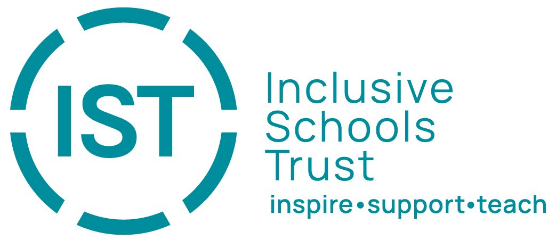At Nightingale Infant & Nursery School we value maths. The journey our children take through mathematics is one of exploration, practise and application. Mathematics is more than just numbers, it is seeing beauty in pattern, developing the ability to reason and work logically through problems, both independently and with others. Mathematics is a creative discipline. It can stimulate moments of satisfaction and wonder when a child solves a problem for the first time, discovers a more precise solution to that problem or suddenly sees hidden connections.
At Nightingale the three aims of the Maths Curriculum are at the heart of everything we do, these are:
- Fluency in the fundamentals of mathematics so that pupils develop conceptual understanding, and the ability to recall and apply knowledge rapidly and accurately.
- Reasoning mathematically by following a line of enquiry, conjecturing relationships and generalisations, and developing an argument, justification or proof using mathematical language
- Problem Solving by applying their mathematics to a variety of routine and non-routine problems with increasing sophistication, including breaking down problems into a series of simpler steps and persevering in seeking solutions.
The CPA (concrete, pictorial, abstract) approach is used throughout the school for children of all abilities. Working walls show modelled examples of how children can approach tasks using the CPA approach. Children refer to the working walls to enable them to be independent in their learning and next steps.
Children follow our own bespoke long term maths plan tailored to our pupil’s specific needs. In key stage one we use the White Rose scheme to support our long term plan, giving our children a variety of strategies and resources. In EYFS we use Mastering Number and our own curriculum for shape, space and measure. Mastering Number is also used in key stage one in addition to our daily maths lesson. This takes place four times a week for ten minutes to secure firm foundations in the development of good number sense for all children. The aim over time is that children will leave KS1 with fluency in calculation and a confidence and flexibility with number.
Pupil voice questionnaires show that children enjoy maths. All children asked say that they feel `happy’ and `good’ about maths and that `it is fun’. They talk about how their teachers help them, what they are trying to get better at, and how they know if they have been successful in their learning. Children are happy to show their maths work in their books and displayed in classrooms and take pride in it.
Parental engagement is key to a successful maths journey. Parent feedback shows that they found maths big shares to be ‘well organised, fun, engaging and very interactive.’ They found the children ‘excited to learn’ in these sessions.
Day after day, we’re shaping happy, confident and resilient learners who discover that maths brings an exciting journey of discovery, understanding – and a lifetime of opportunities.
How to Help your Child
Useful Websites
- Oxford Owl – Maths
100s of resources, games and videos to help support your child’s maths learning at home
- ICT Games
All areas and age groups
- BBC Learning
All areas and age groups
- Nrich
Problem solving in all areas
- Top Marks
Quickfire halves, doubles, multiply, divide all years
- Maths Hub
All areas and age groups
- Maths is Fun
All areas and age groups
- Primary Rescources
All areas and age groups
- Maths Mastery
Maths Mastery for Year 1 problem solving
- Maths Mastery
Maths mastery for Year 2 problem solving
- SATS
Maths Key stage 1 2019 test paper-arithmetic (year 2)
- SATS
Maths Key stage 1 2019 test paper-reasoning (year 2)
- Mathematic Curriculum
Mathematics curriculum for Year 1 and Year 2
Mathematical Vocabulary
Learning to Count – Oxford Owl
Activities to Try at Home
 Counting forward and back from any number (jump backwards or forwards). Use any numbers
Counting forward and back from any number (jump backwards or forwards). Use any numbers Counting in steps of 2, 5, 10 and 3
Counting in steps of 2, 5, 10 and 3 Count your money! Go shopping and see if you can make the correct amount.
Count your money! Go shopping and see if you can make the correct amount. Go on a shape walk-can you spot 2d AND 3d shapes.
Go on a shape walk-can you spot 2d AND 3d shapes. Try telling the time to O’clock/half past then quarter to/past and 5 minute intervals
Try telling the time to O’clock/half past then quarter to/past and 5 minute intervals Bake and measure-use millilitres/litres, grams/kilograms.
Bake and measure-use millilitres/litres, grams/kilograms. Take your temperature or check the weather outside using degrees centigrade.
Take your temperature or check the weather outside using degrees centigrade. Measure your home/garden/mum/dad/pet using centimetres and metres
Measure your home/garden/mum/dad/pet using centimetres and metres Cut your food into fractions, halves, quarters. Thirds, two quarters, three quarters.
Cut your food into fractions, halves, quarters. Thirds, two quarters, three quarters. Keep a food/exercise/personal/pet diary using days of the week.
Keep a food/exercise/personal/pet diary using days of the week. “Program your adult” using language of position and direction (half turn,quarter turn etc)
“Program your adult” using language of position and direction (half turn,quarter turn etc)


